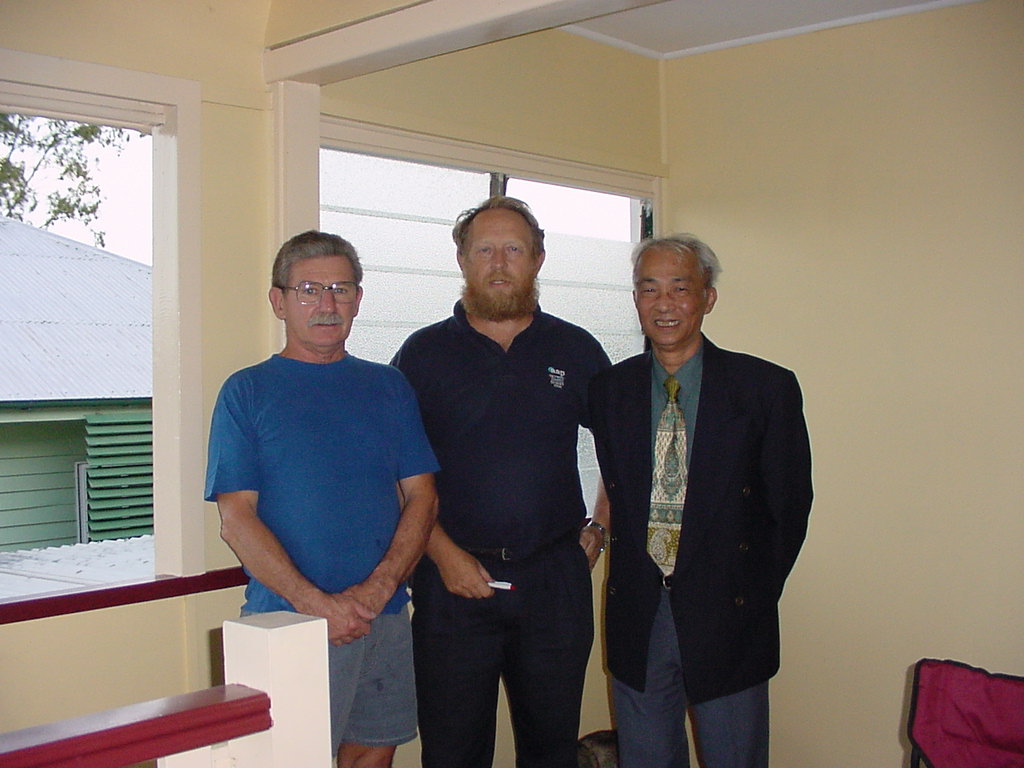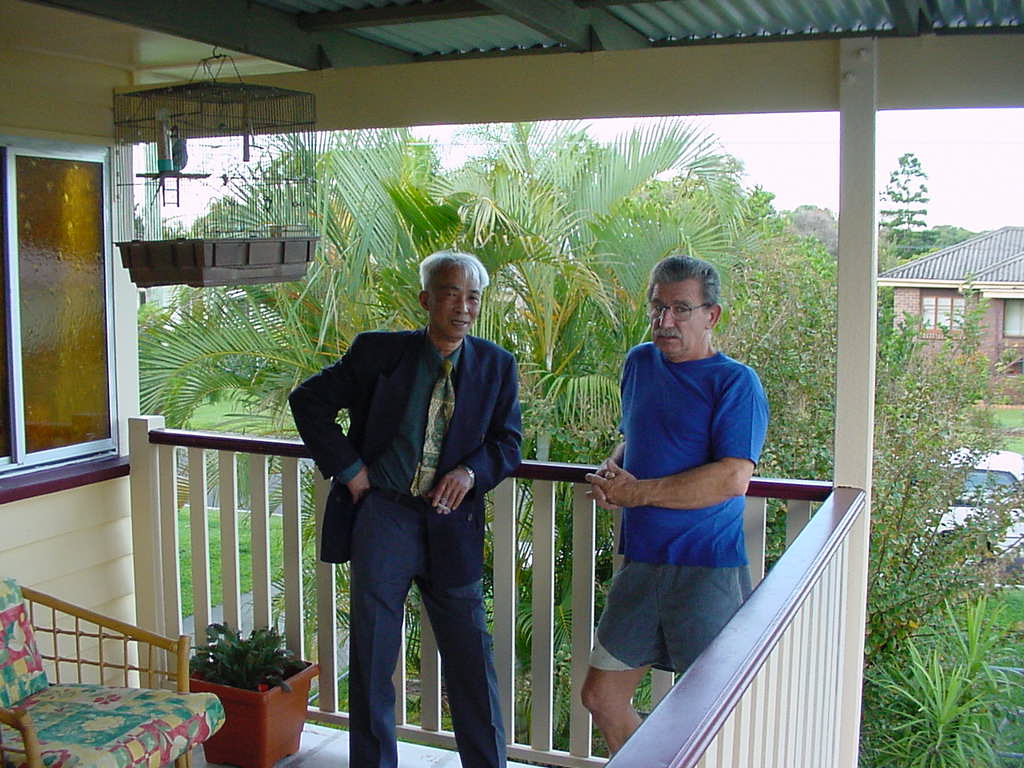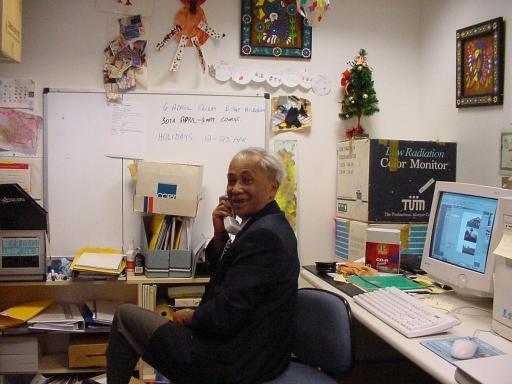Pham Ngoc Dinh
by Doug Conway

- AAP lost a very special staff member this week with the death of Pham Ngoc Dinh, known to all as Mr Dinh.
- Former war correspondent Pham Ngoc Dinh, described as a friend to every Australian journalist in the Vietnam War, has died in Sydney aged 64.
- "Mr Dinh" was a rural peasant youth who turned up in Saigon in 1960 offering to work for nothing.
- He became a messenger and office boy for Reuters and ultimately office manager and correspondent.
- He was regarded as a "Mr Fix-It" whose unrivalled contacts could discover or procure almost anything, anywhere, at short notice.
- When Saigon fell in 1975 he found himself in a twilight zone - not trusted by the new communist rulers, unable to leave and, because of censorship, effectively without a job, even though he opened the Reuters office every day for five years.
- When he was eventually spirited out of Vietnam in 1980 he had no hesitation in nominating Australia as his preferred destination.
- Australian Associated Press (AAP) helped persuade the government to approve Dinh's admission as a special case for "extraordinary services to Australian journalists in Saigon", and he worked for the national news agency until his death.
- Australian journalist and author Hugh Lunn once described Mr Dinh was "a better reporter and man than any of us".
- Never was that better illustrated than when three Australians, including AAP reporter Mike Birch, and an English correspondent were shot dead in 1968 in an area of Saigon overrun by Viet Cong guerrillas.
- "Only one man volunteered to go into this deadly area to see if any of the four could yet be saved," Lunn wrote later.
- "Amazingly he was not an Australian or an American or even a government official.
- "The man who walked one kilometre into the battle zone alone was Dinh, a friend to every Australian journalist during that ugly war."
- Dinh got in by pretending to be a Viet Cong sympathiser.
- "My heart order me to do that," said Dinh in his unique brand of English, known affectionately as Dinglish, which he learned from a dictionary.
- But the mission to help the four, especially his great friend and fellow Reuters staffer Bruce Pigott, was a lost cause.
- "I put my hand in Bruce's heart," Dinh said.
- "But finished. No, nothing more."
- He managed to recover their bodies.
- Dinh came close to death several times during the 1968 Tet offensive which signalled the beginning of the end for South Vietnam.
- Recalling being caught in the streets under prolonged Viet Cong rocket attack, he said: "I think I die. I think I never to see my children again. I cry and cry. After many hours I reach office."
- During the battle for the occupied US embassy, an American soldier swung his rifle towards Dinh.
- "I shouted, 'I not Viet Cong. I number one anti-communist'.
- "The soldier put his gun down and I thank God."
- When he moved to Australia, Dinh's former Reuters colleagues thought so much of him that they organised a whip-round and sent him a substantial cheque to help him start his new life.
- Mr Dinh was recently accepted as a member of the Vietnam Veterans Association of Australia.
- He is survived by his wife Vy, four children from his first marriage who live in California and two sons from his second marriage - a marketing manager based in Tokyo and an engineer in Sydney.
- A church service will be held at St Joachim's Catholic Church, cnr Mills and John Sts, Lidcombe, at 10am on Saturday, May 24, before the cremation service at Rookwood Crematorium at 11:15am.
- In lieu of flowers, the family prefers to have donations made to the RPA Liver Transplant Foundation.
AAP Today Article
written by Francis Daniel (Reuters)
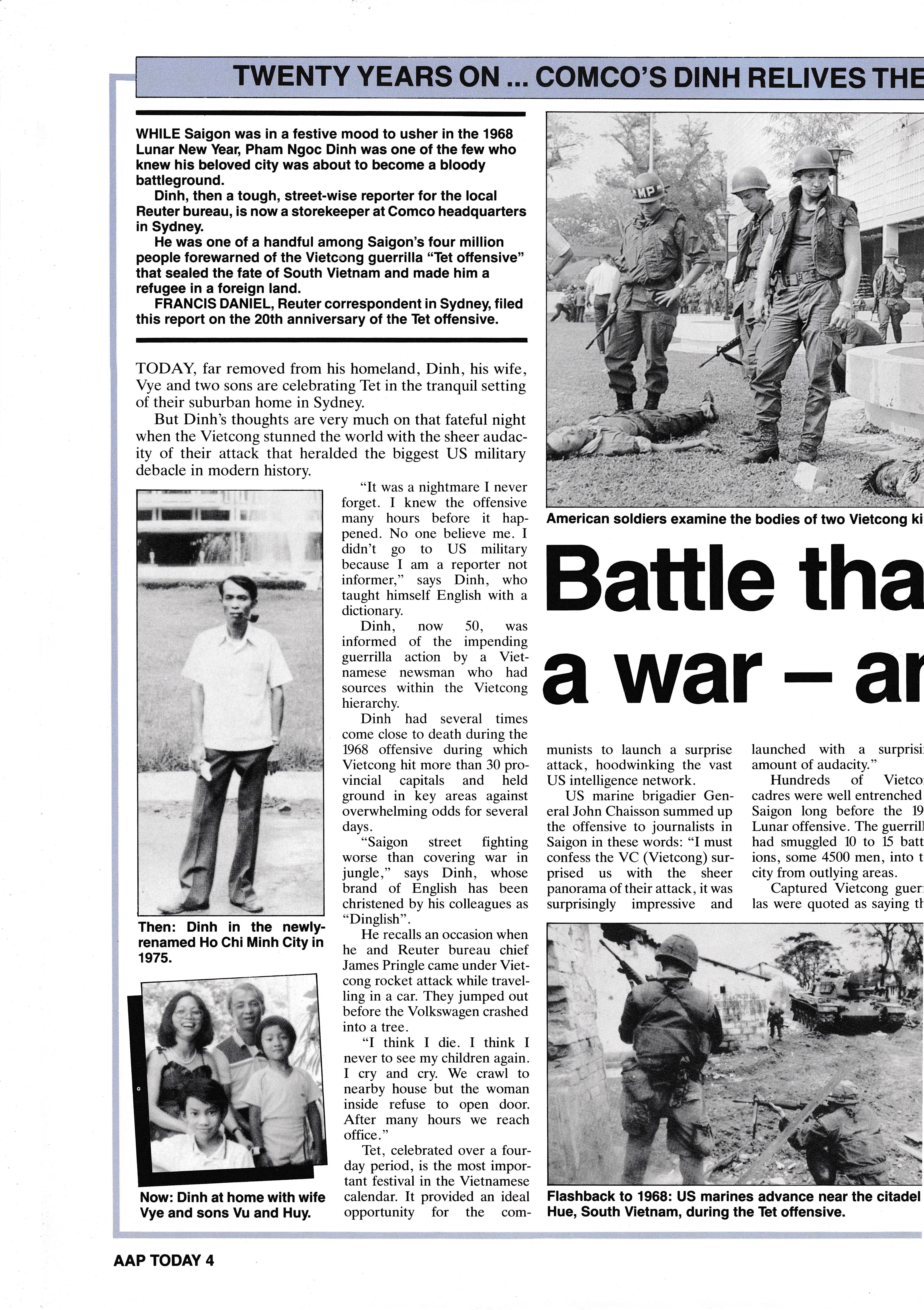
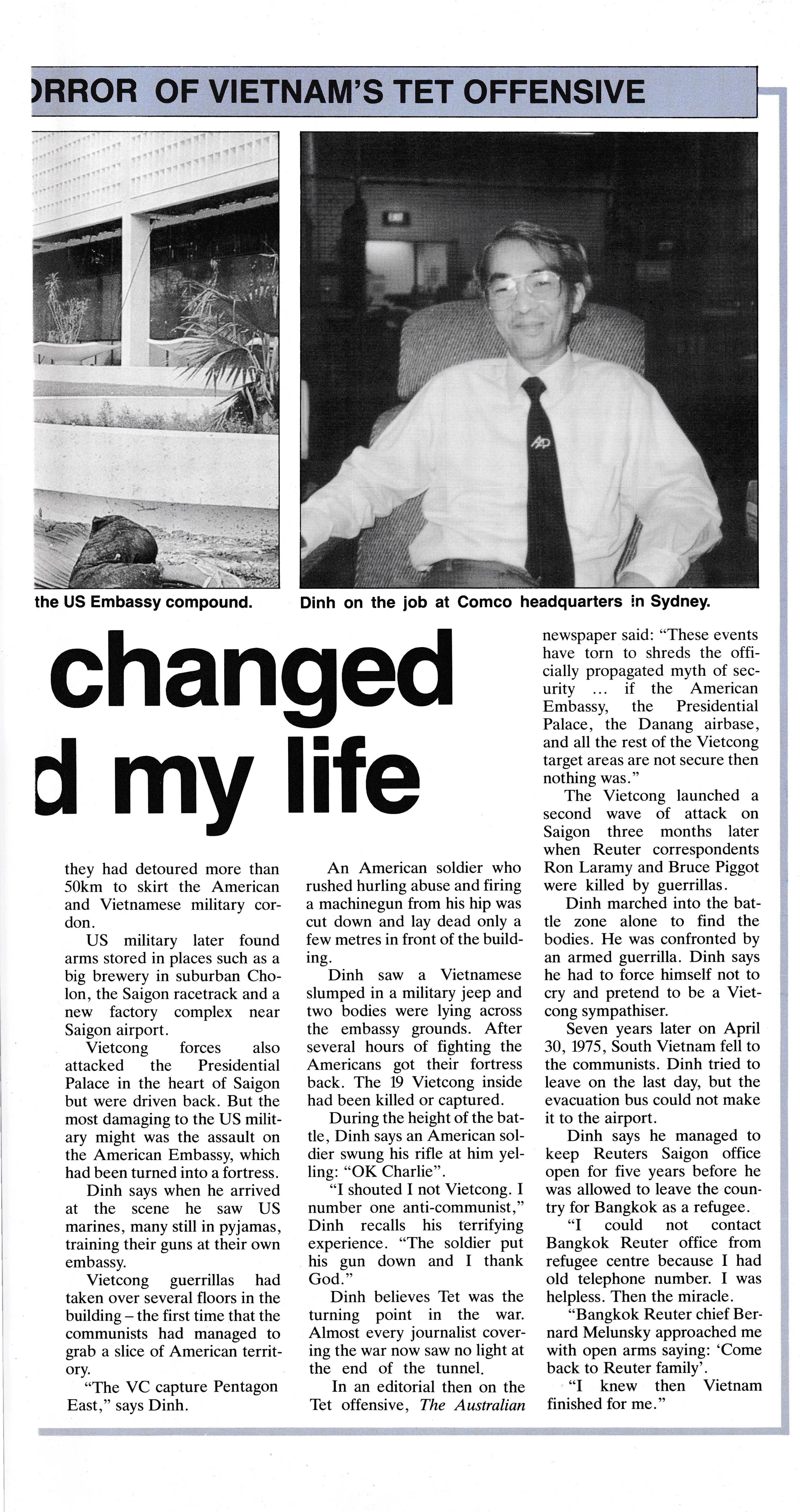
Mr Dinh, Larry Wright and Adrian Spencer.
